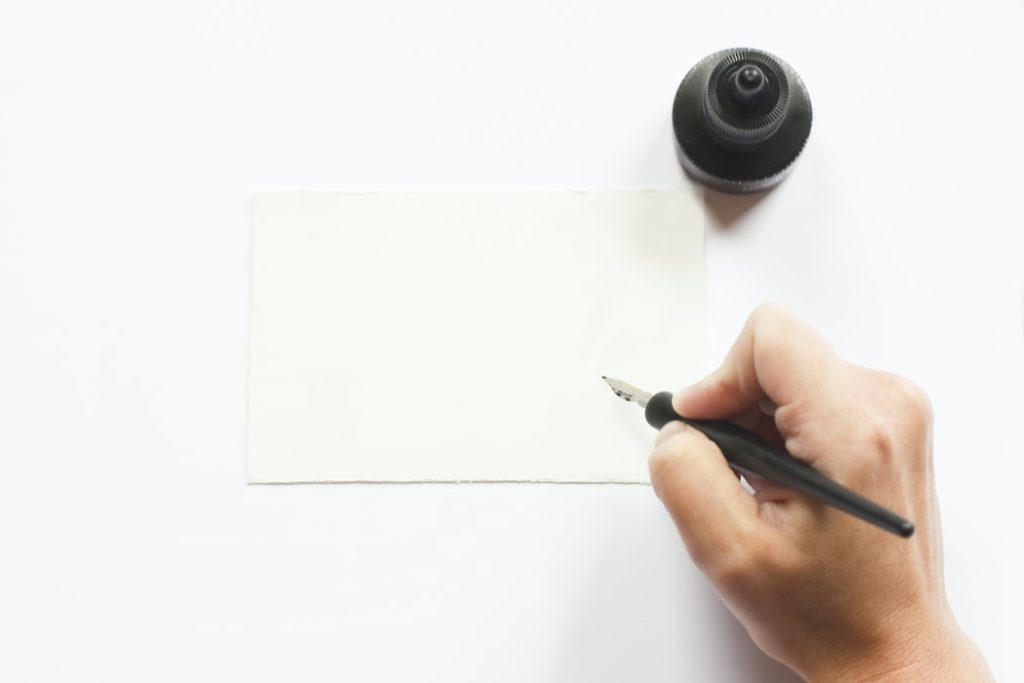You’re Halfway Done Once You’ve Spilled the First Droplets of Ink on the Page
For college writing assignments, I used to joke with friends that I was halfway done once I had written my name at the top of the page. Once I had spilled the initial droplets of ink, my forward momentum kept me going.
I used to think that was a joke, but it’s turned out to be more true than I realized.
Recently, I’ve noticed that my Medium articles are seemingly halfway done once I’ve clicked the “New Story” button and begun plunking the keys to write my headline and subtitle. Once I’ve worked up the courage to get that far, momentum has begun to work in my favor. The snowball is rolling downhill.
Here are four reasons why it’s best to just begin typing:
1. Waiting for inspiration is the wrong move
“Do not wait to strike till the iron is hot, but make it hot by striking.” -Attributed to William Butler Yeats
Inspiration sometimes strikes, but it’s a fickle mistress. If I were to wait to write until I felt inspired, I’d only end up writing once every week or two — and likely only for thirty minutes at a time. That’s about how long my “inspiration” sticks around. The rest of my writing time is grinding. Willpower. Digging until I unearth something worth saying.
Often, you won’t know what you want to write about until you start writing.
2. Your brain will kick into second gear
“Writing is an act of discovering what you think and what you believe.” -Daniel Pink
It’s easy to buy into the myth that every “real” writer works from a meticulous outline (either on paper or in their head) and the words flow out in brilliant prose.
But it doesn’t work like that — at least for most people. Writing is a process of self-discovery. The very act of writing unlocks your ideas and passions, which means that you are smarter while writing than you are when you’re not writing.
Writing is like riding a ten-speed bike. We’re all taught to not shift gears while standing still; it’s bad for the bike. If you want to shift into a higher gear, you can only do so after you jump onto the bike and begin pedaling. The same goes for writing. If you want to ratchet up your thinking, you must jump onto the bike. Only then will you be able to shift mental gears to solve that tough problem in your story.
3. Your subconscious will come to your aid
“In short, you may actually be writing only two or three hours a day, but your mind, in one way or another, is working on it twenty-four hours a day — yes, while you sleep — but only if some sort of draft or earlier version exists. Until it exists, writing has not really begun.” -John McPhee
After I’ve begun to write about something, my mental frequency is tuned in to the channel of that piece. I begin to notice ideas for that story around me in my daily life because I now know what to look for.
When you write, you tap into an intelligence previously undiscovered. You summon the power of your subconscious, even when you’re sleeping. (Ever wake up in the middle of the night with a great idea for your story? Yup, that’s what I’m talking about.)
4. You can always rewrite, which is basically a cheat code
“Just start writing and then work it out. You can always re-write it. You can change it. That’s the great luxury of being a writer. We’re not surgeons. The world does not hold us to our first pass. You know, if we kill the heart patient, we just get to operate again, ten times, before we get the operation right. So make use of that extraordinary freedom and just get stuff down and come back to it.” -Malcolm Gladwell
It’s tempting to think that you need to have a fully-formed idea in your head before you sit down to write, but that’s often not how it works.
If you refuse to write down half-baked ideas, you will severely limit your potential as an author. Think of the writing process like an oven. The very act of writing is what helps bake the idea — creating a delightful final product.
Allow yourself to work out problems on paper. It’s easier to make connections on paper through the drafting process than it is to do it all in your head. Take advantage of the drafting process.
In the words of author S.A. Bodeen, “It’s easier to revise lousy writing than to revise a blank sheet of paper.”
Do you feel like the drafts folder of your brain is full, but the drafts folder on your computer is empty? If so, you should do something about that.
Every story lies submerged below the earth. It won’t dig itself out. You must pick up a shovel and start digging. Don’t worry if you can’t see the full story — you rarely will. You’ll unearth the rest of the story as you begin digging.
Make the decision today to pick up the shovel. Start typing.




